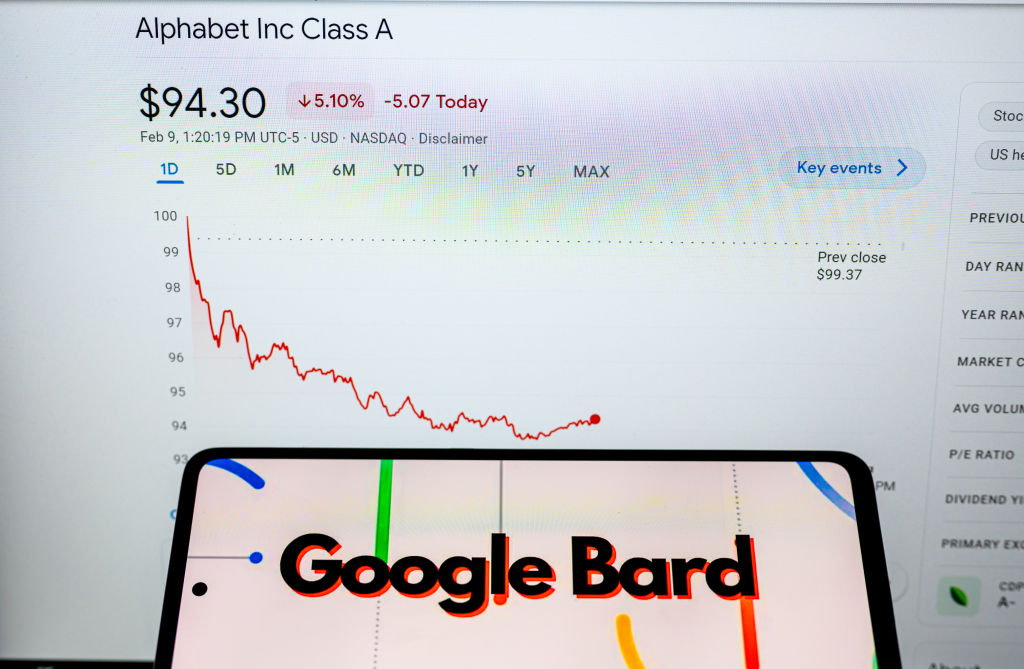Collaborative working: six ways it's changing the face of business
Technology has changed how we communicate, travel and manage our lives, and it's had a positive impact on business too

A free daily email with the biggest news stories of the day – and the best features from TheWeek.com
You are now subscribed
Your newsletter sign-up was successful
"Alone we can do so little; together we can do so much," said American author Helen Keller. It's a quote that resonates strongly today, where the collaborative economy is booming.
We have a lot to thank technology for. It has changed the way we communicate, travel, keep in touch and manage our lives, and it's had a positive impact on business, too. Thanks to collaborative technology, it's possible to be 6,000 miles away from a colleague, for example, and still work just as effectively.
Big business is getting behind this togetherness. Last year Deloitte, the consultancy, launched its 'Future of the Workplace' initiative; promising to align technology, flexible working strategies and innovative workspaces. Its 2014 Global Human Capital Trends report said that one of the key leadership skills big businesses were hunting for was collaboration.
The Week
Escape your echo chamber. Get the facts behind the news, plus analysis from multiple perspectives.

Sign up for The Week's Free Newsletters
From our morning news briefing to a weekly Good News Newsletter, get the best of The Week delivered directly to your inbox.
From our morning news briefing to a weekly Good News Newsletter, get the best of The Week delivered directly to your inbox.
Employees want collaboration too. At the end of August, a report from platform Alfresco found that 94% of UK workers thought collaboration was 'critically important or important' to their job.
Here are seven ways that collaborative working is changing the face of business.
The cloud
Ten years ago, nobody had heard of the cloud – but now it's hard to imagine professional life without it. 'The cloud' simply means taking data traditionally stored in-house and storing it on online servers instead. Tools such as Dropbox, WeTransfer and the Google suite (see below) mean we can collaborate with colleagues and clients all over the world in real time, replacing the need to work near a traditional server and breaking communication barriers between departments. Cloud technology allows colleagues to share and store files – anything from images to documents to music – virtually, typically at low cost. Systems such as iFollowOffice even negate the need for a desk: it offers cloud desktop services that unshackle employees from being bound to a desk by "virtualising" all applications and data. Reliance on the cloud is a trend that's set to continue: technology research firm Gartner predicted that by 2018, at least 30% of service-focused companies will move their business management to the cloud.
A free daily email with the biggest news stories of the day – and the best features from TheWeek.com
Google suite
Leveraging cloud technology, the Google suite – Google Drive, Google Docs, Google Calendar et al – has radically changed the way many businesses share information. Google Drive is an online server, allowing users to upload documents, images and videos and share them with others in the network as well as viewing and editing together in real time. Don't forget Google Hangouts, too. The application, which also runs on mobile, is particularly useful when speaking to remote employees, as they mean a group can start a chat and share ideas, problems and – of course – the odd emoji. Google Docs in particular has changed the way businesses save and edit documents, and it comes with some impressive hidden features says The Telegraph, including being able to view and edit documents offline and see a document's revision history.
Video calling
Speaking to colleagues and clients on the phone, rather than email, can actually make you seem smarter, according to Business Insider. Video calling service Skype allows multiple people to join the call, and being able to look the other members of the call in the eye means a high level of attention. Meanwhile, mobile-optimised conference call providers MeetingZone and Powwownow have reduced the reliance on traditional conference calls, where the caller is tied to a landline.
Slack
Despite being only two years old, business chat app Slack now boasts a valuation of US$120bn, according to the Guardian. "It works best for small to medium-sized teams, who create a joint account and can then talk with each other on IRC-style channels, send direct messages, and create private groups," it reports. The Verge reported last year that Slack was "killing email". Why? Slack centralises all communication onto one single platform, whether that's in private groups or open channels. Plus, it can integrate third-party apps like Dropbox and Google Drive.
Information dashboards
More collaboration means increased engagement between employer and employee. Recent research from KPI dashboard firm Geckboard found that fewer that one in 10 employees were kept up-to-date with company progress, often feeling irate at being kept in the dark. Systems such as Geckoboard update key pieces of company 'big data' (for example website analytics, sales spreadsheets, share price) on a digital dashboard in the office, which means employees are well-informed of news, themes and stats within the company, and begin to feel much more involved in a business' success.
This applies to customer relationship management (CRM) systems too. The leaderboard feature of cloud computing firm Salesforce's CRM app displays each sales team member's rank within a company office, includes links to their social media profile. The end goal is to increase the team's knowledge of their success and that of their peers.
Kanban
When it comes to improving logistics within a business, collaboration doesn't necessarily involve the latest technology. Kanban (meaning 'billboard' in Japanese) is a collaborative system developed by car manufacturer Tokyo. It's designed to improve a production process, modelling itself on a supermarket shelf stacking process. Kanban works by always giving an employee just the right amount of work to do (similar to a supermarket only loading the right amount of goods onto the shelves) which means collaborating between departments to understand the rate of demand and rate of production.
This is an independent guide from the The Week, but sponsored by SMART kapp - a company that is passionate about making businesses more productive.[[{"type":"media","view_mode":"content_full_width","fid":"84915","attributes":{"class":"media-image"}}]]
-
 The ‘ravenous’ demand for Cornish minerals
The ‘ravenous’ demand for Cornish mineralsUnder the Radar Growing need for critical minerals to power tech has intensified ‘appetite’ for lithium, which could be a ‘huge boon’ for local economy
-
 Why are election experts taking Trump’s midterm threats seriously?
Why are election experts taking Trump’s midterm threats seriously?IN THE SPOTLIGHT As the president muses about polling place deployments and a centralized electoral system aimed at one-party control, lawmakers are taking this administration at its word
-
 ‘Restaurateurs have become millionaires’
‘Restaurateurs have become millionaires’Instant Opinion Opinion, comment and editorials of the day
-
 Google loses antitrust suit, declared 'monopolist'
Google loses antitrust suit, declared 'monopolist'Speed Read A federal court has ruled that Google illegally dominated the internet search industry
-
 Lawmakers say tax prep companies illegally shared taxpayer data with Meta and Google
Lawmakers say tax prep companies illegally shared taxpayer data with Meta and GoogleSpeed Read
-
 How ChatGPT breathed new life into the internet search wars
How ChatGPT breathed new life into the internet search warsSpeed Read The AI arms race is upon us
-
 Search wars: Google's new challenge from AI
Search wars: Google's new challenge from AIfeature How will Microsoft even things up?
-
 Google didn't believe Bard AI was 'really ready' for a product yet
Google didn't believe Bard AI was 'really ready' for a product yetSpeed Read
-
 What Big Tech CEOs are saying about their companies' layoffs
What Big Tech CEOs are saying about their companies' layoffsSpeed Read Tech companies are cutting thousands of jobs. Are the top bosses owning up to mistakes or 'sidestepping the blame'?
-
 Will China’s national security crackdown end Hong Kong’s status as a big tech hub?
Will China’s national security crackdown end Hong Kong’s status as a big tech hub?feature Facebook, Twitter and Google threaten to leave over proposed data legislation
-
 Fake reviews: an industry within an industry
Fake reviews: an industry within an industryIn the Spotlight Amazon and Google are under investigation by UK watchdog the CMA